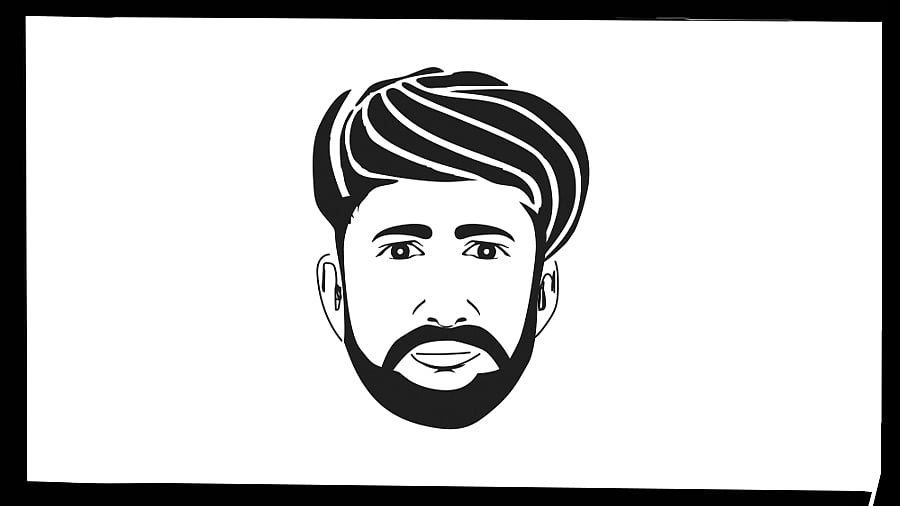
India’s ruling national party, the Bharatiya Janata Party (BJP), has reframed the conventional caste question by incorporating the cultural and economic concerns of Dalit-Bahujan groups into its political programme. In the era of assertive ‘Subaltern Hindutva’ politics, when a significant section of Dalit-Bahujan groups has come to identify with and actively promote Hindutva, reflecting on Jyotirao Phule’s life and mission becomes a complex task. Phule has been heralded as an iconic figure for the social and economic empowerment of socially marginalised groups. However, in contemporary political discourse, his thoughts and actions can be seen as antagonistic to the ideological orientation that the current political regime champions.
Phule envisioned unity among the oppressed to challenge the repressive authority of Brahmanical caste elites and called for radical social transformation. He dedicated himself to the liberation of women, Dalits, and peasants, advocating for their unity as a revolutionary necessity to build a modern, egalitarian India. While the participation of oppressed social groups in democratic processes has increased, the socio-economic realities of their lives have not seen significant change. In this context, Phule’s ideas are more relevant than ever.
In 1848, in the heart of colonial India, Phule, with the help of his wife Savitri Bai Phule established the first school in the country for Shudra and Dalit girls. The bold, transformative act challenged the oppressive social structures of his time and set the foundation for a revolutionary vision of social justice. Unlike many of his contemporaries who were part of the social elite and relied on empty rhetoric, Phule was a man of action.
Phule’s revolutionary journey was not just about education or reforming the existing caste system. It was about dismantling the very foundations of what he saw as an oppressive, historical ideology rooted in Brahmanism. He was not merely advocating for cosmetic changes in the social structure but for a complete overthrow of the oppressive system. His ideas were bold, visionary, and uncompromising in their commitment to dismantling the power structures that oppressed women, lower castes, and the peasantry.
At a public meeting in Bombay in 1885, Phule advocated for a radical shift in the lower castes’ approach to religious and ritualistic practices. He suggested that they organise their social customs and rituals free from the dominance of Brahman priests. This was a revolutionary stance: to eliminate the role of the priesthood that was so entrenched in maintaining the power of the upper caste. It was not just a question of social reform; it was a call to challenge the very power dynamics that held the oppressed in place.
Phule’s ideological framework was simple but radical. Instead of seeing the social order in terms of the traditional Chaturvarna system, he formulated a bipolar framework – dividing society into two broad categories: Brahmans and the majority Shudra-Atishudra castes. Caste was not about social stratification, but a relationship of power and dominance. His focus was not on divisions within the oppressed groups but on the potential for unity amongst them.
This binary structure acknowledged the inherent conflict and oppression between the two groups. Brahmanism, Phule argued, was not a divine or sacred system, but a historically constructed ideology of domination and oppression. Its purpose was clear: to subjugate and maintain control of social elites over the socially marginalised masses. Such an order had to be smashed.
Gender in focus
What made Phule’s critique so powerful and ahead of its time was his inclusive and gendered approach to oppression. For him, women, regardless of whether they were born into the Brahman or Dalit caste, were part of the oppressed Shudra-Atishudra collective. In this sense, his critique of Brahmanism went beyond caste. His assertion that a Brahman woman was as much a victim of the system as a Dalit woman represented a radical, modern view of oppression that saw gender, not caste, as the core source of subjugation for women. For Phule, the oppressed needed to come together, transcending the caste and gender divisions, to challenge the Brahmanical structures that bound them.
Phule proposed a theory of social revolution, a call for a complete dismantling of the existing system, both ideologically and materially. Most importantly, he believed that revolutionary ideas had to be rooted in everyday praxis. The Shudra-Atishudras, Phule argued, would lead a revolution on behalf of the entire society, liberating all people from the shackles of Brahmanical oppression.
His critique of caste was inseparable from his critique of gender, and his rejection of Brahmanism was intertwined with a call for an inclusive, egalitarian society. Phule was perhaps the first Indian thinker of the nineteenth century who insisted on a radical transformation of India’s socio-economic order, envisaging the liberation of Dalits, women, and peasantry from the Brahmanical-feudal order. He saw the liberation of the oppressed not as a distant dream, but as an achievable goal, one that required the collective action of the marginalised. In the long trajectory of India’s social and political struggles, Phule’s revolutionary vision remains a cornerstone of the movement for equality and justice.
Contemporary India is still struggling to overcome caste and gender-based disparities. The situation is more acute for the poor peasantry and landless agricultural labourers. The deprived social groups continue to live as powerless and passive participants in political and economic developments. The political elites overtly neglect the pressing issues of agrarian poverty, farmers’ suicides, indebtedness, and social marginalisation of the worst-off social groups, and often engage with them on emotive cultural issues. Phule’s ideas can be used to critique the governing class for such distancing towards the problems faced by the Dalits, women, and the poor peasantry, and to ignite a radical consciousness amongst these groups to bring substantive change in social and economic order.
April 11 is the birth anniversary of Jyotirao Phule.
(The writer is an assistant professor at the Centre for Political Studies, School of Social Sciences, JNU, New Delhi)